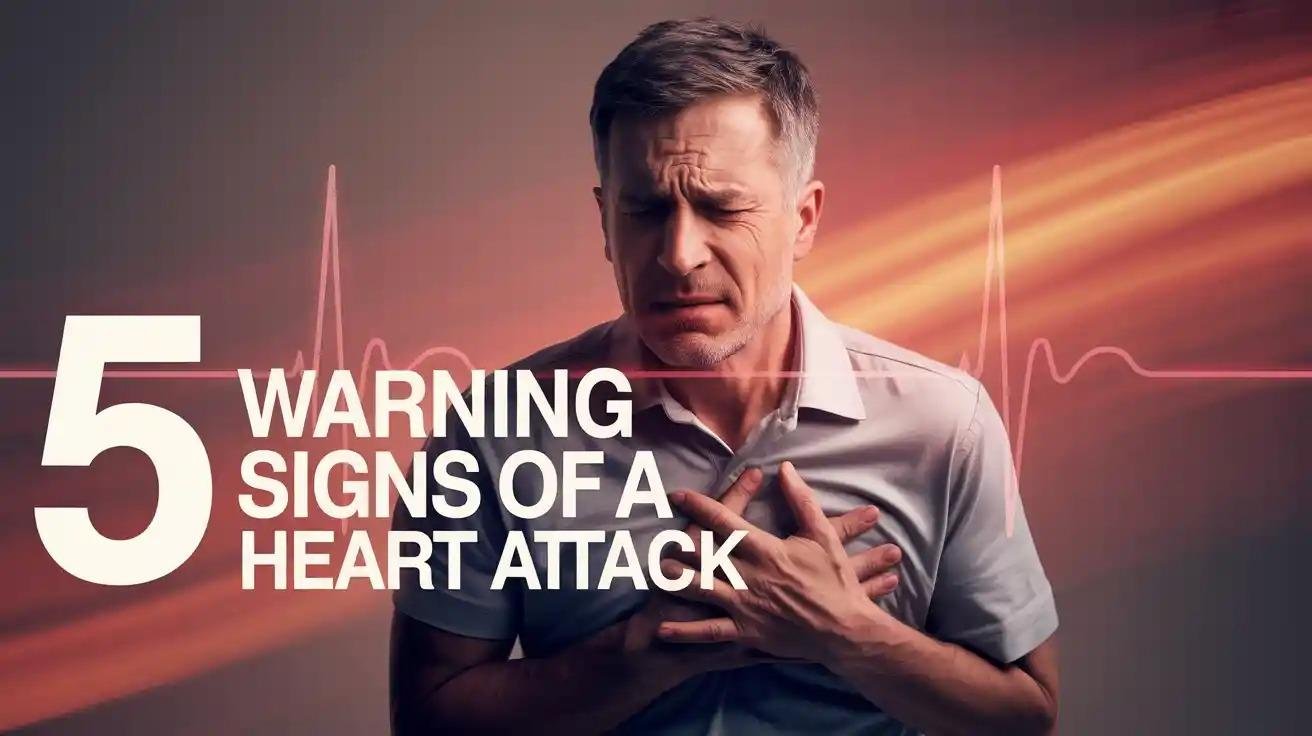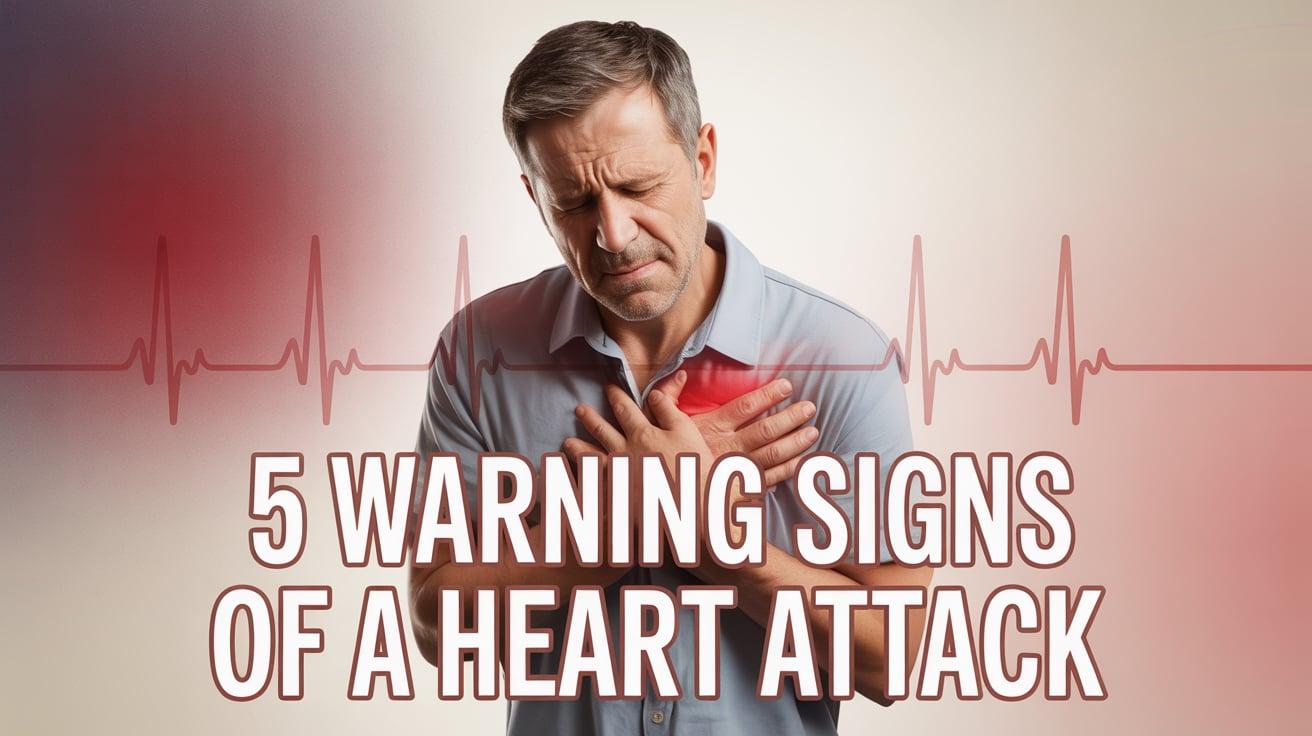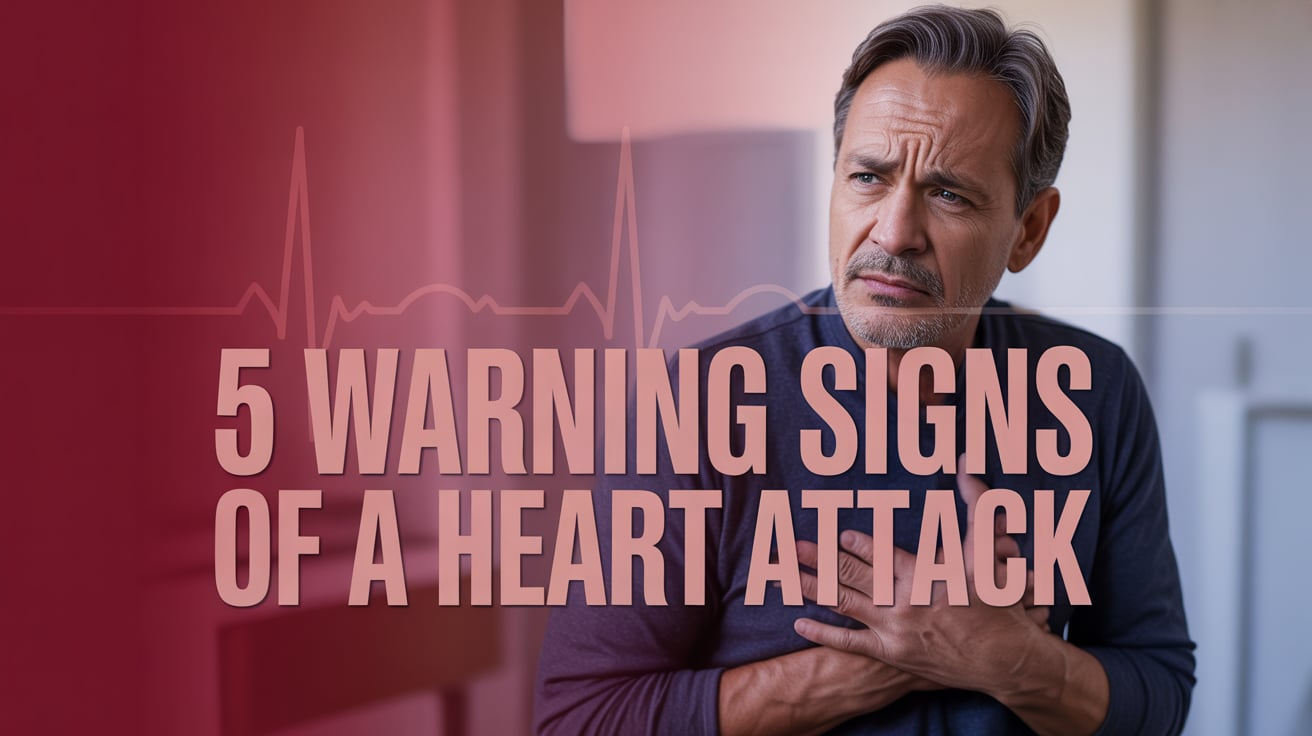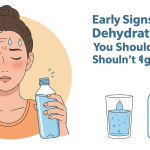A heart attack, also known as a myocardial infarction, happens when blood flow to part of the heart muscle becomes blocked. Without enough oxygen, the heart muscle begins to die. A heart attack is a medical emergency, and knowing the warning signs can save your life or the life of someone you love.
Unfortunately, many people delay treatment because they aren’t sure what’s happening. Some think it’s just indigestion, muscle pain, or anxiety. But acting quickly increases the chance of survival and limits heart damage.
Read More: Healthy Snacks for Kids
Below are five major warning signs you should never ignore.

🚨 1. Chest Pain or Discomfort
Chest discomfort is the most common warning sign of a heart attack.
It can feel like:
This discomfort often starts in the center or left side of the chest. It may last more than a few minutes, or go away and return.
How it feels:
People describe it as:
“An elephant sitting on my chest”
“A vice tightening around my heart”
“A burning pain like heartburn”
Important: If you have any chest pain you can’t explain, treat it as an emergency.
🚨 2. Pain in Other Areas of the Body
Chest pain is not the only sign. Heart attack pain can spread beyond the chest to other parts of the body, including:
One or both arms, especially the left arm
The neck or jaw
The back or shoulders
The upper stomach (sometimes mistaken for indigestion or reflux)
How it feels:
The pain may be dull, heavy, or feel like pressure. In some cases, it can feel like tooth or jaw pain that won’t go away.
Women, older adults, and diabetics are more likely to experience these “atypical” pain patterns.
🚨 3. Shortness of Breath
Another critical warning sign is difficulty breathing, even when resting.
How it feels:
You might feel like you can’t take a full breath.
Breathing may feel fast and shallow.
It may be accompanied by chest discomfort or occur on its own.
Shortness of breath can happen before, during, or after chest pain.

🚨 4. Cold Sweat, Nausea, or Lightheadedness
Many people having a heart attack break out in a cold sweat without any clear reason.
You may also feel:
Why does this happen?
When the heart is under stress, it triggers the nervous system to release stress hormones (like adrenaline), causing sweating, nausea, and dizziness.
These symptoms are more common in women, which sometimes leads them to dismiss the problem as the flu or stress.
🚨 5. Unusual or Extreme Fatigue
Feeling exhausted for no obvious reason can be an early warning sign, especially in women.
How it feels:
Sudden, overwhelming tiredness that isn’t related to activity
Feeling weak or drained
Struggling to do simple daily tasks (like walking to the bathroom)
Fatigue that gets worse over several days
This fatigue may occur weeks before a heart attack.
⚠️ When Should You Call for Help?
Never wait to see if symptoms will go away.
If you have chest pain or any combination of these warning signs:
✅ Call your local emergency number immediately (e.g., 911 in the U.S.)
✅ If instructed by emergency services and not allergic, chew and swallow an aspirin (usually 325 mg) to help thin your blood.
✅ Don’t drive yourself to the hospital. Wait for an ambulance, as they have life-saving equipment.
💡 What Makes Symptoms Different in Women?
Women often have less obvious symptoms, such as:
Because of these differences, women are more likely to dismiss symptoms or be misdiagnosed. If you’re unsure, always get checked.
🩺 How Can You Reduce Your Risk?
While you can’t change your age or genetics, you can lower your risk by:
Quitting smoking
Managing high blood pressure and cholesterol
Eating a heart-healthy diet (low in saturated fats, rich in fruits, vegetables, and whole grains)
Exercising regularly
Controlling diabetes
Reducing stress
Talk to your doctor about your risk factors and create a prevention plan.
✅ Conclusion: Take Every Symptom Seriously
A heart attack can come without warning or feel very different from what you expect. Never ignore unexplained chest discomfort, pain in the upper body, sudden shortness of breath, cold sweat, or extreme fatigue.
If you think you or someone around you is having a heart attack, act immediately. Every minute counts.

1. What does a heart attack feel like?
Most heart attacks cause chest pain or discomfort that feels like pressure, squeezing, or heaviness. The pain can also spread to your arms, neck, jaw, back, or stomach.
2. Can heart attack symptoms be different in women?
Yes. Women are more likely to experience nausea, unusual fatigue, lightheadedness, and pain in the back or jaw instead of classic chest pain.
3. How long do symptoms last before a heart attack?
Symptoms can come on suddenly or develop gradually over hours or days. Some people feel extreme fatigue or discomfort days in advance.
4. What should I do if I suspect a heart attack?
Call emergency services immediately. Chew an aspirin if advised and wait for help. Do not attempt to drive yourself to the hospital.
5. Are heart attack symptoms always severe?
No. Some heart attacks cause only mild discomfort. Even if symptoms seem minor, always treat them as an emergency.









